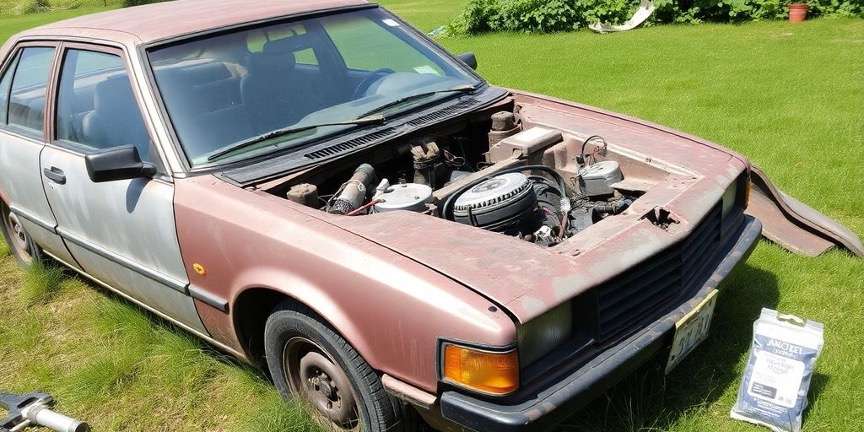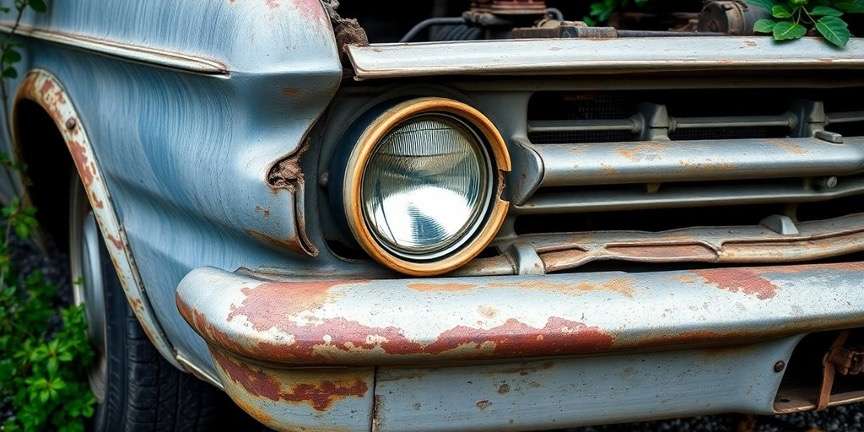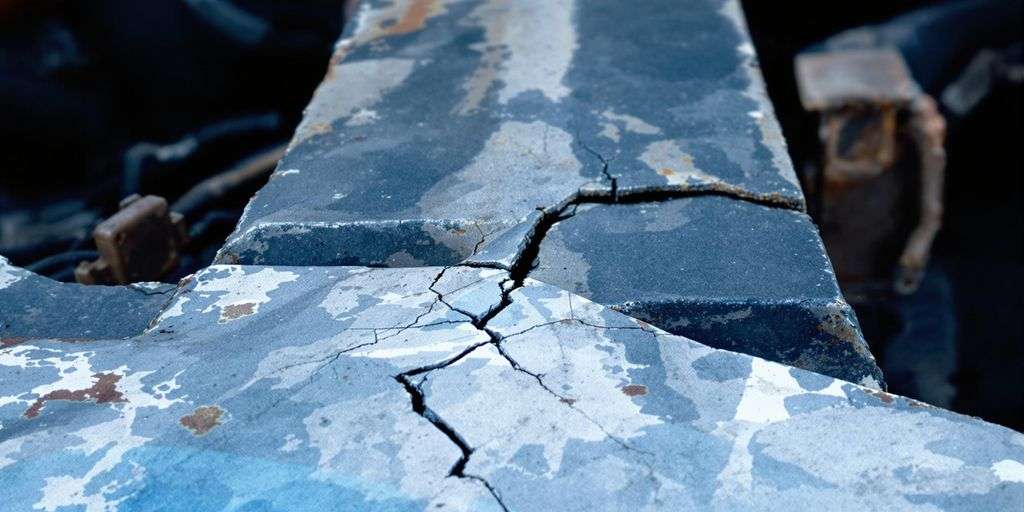Key Takeaways
- Understand the type of frame damage your car has and its impact on safety.
- Evaluate your junk car's value with a professional appraisal and consider salvage title implications.
- Prepare your car for sale by gathering documents and deciding on necessary repairs.
- Choose the right selling option, whether it's a salvage yard or an online platform.
- Be aware of legal requirements for transferring ownership and handling any liens.
Understanding Frame Damage in Junk Cars
Identifying Signs of Frame Damage
When it comes to spotting frame damage, there are a few telltale signs you can't ignore. Unusually worn tires are often a dead giveaway. If your car seems to drift or pull to one side even after a wheel alignment, that could mean a bent frame. Another clue? Doors that don't close smoothly or panels that don't fit quite right. If your car starts making new rattling or squeaking noises, especially when combined with these other issues, it's time to take a closer look.
Types of Car Frames and Their Vulnerabilities
Cars generally have two types of frames: unibody and body-on-frame. Most modern cars use a unibody design, where the frame and body are a single piece. This makes them lighter and more efficient, but they're also more prone to damage in a crash. On the other hand, larger vehicles like trucks and SUVs often use a body-on-frame design, which can handle more stress and is easier to repair. But remember, more flexibility means they can also hide damage better.
Impact of Frame Damage on Vehicle Safety
Frame damage isn't just a cosmetic issue—it can seriously affect your car's safety. A compromised frame can lead to poor handling, making the vehicle unpredictable and potentially dangerous. In a collision, a damaged frame might not absorb impact as it should, putting you and your passengers at risk. It's crucial to address any frame issues promptly to maintain the safety of your vehicle.
Frame damage can often spell the end for a vehicle, but it's not always the final chapter. Depending on the severity, some cars can be repaired and made roadworthy again, though they might end up with a salvage title. Understanding the extent of damage is key to making informed decisions about repairs or sales.
For more on how vehicles are categorized based on their condition, check out the different damage codes that help buyers understand the extent of damage.
Evaluating the Value of a Junk Car with a Cracked Frame
Factors Affecting the Car's Value
When you're trying to sell a junk car with a cracked frame, understanding what affects its value can be a game-changer. Several factors come into play, such as the make and model of the car, the extent of the frame damage, and the car's age. Cars that are newer or have rare parts might still fetch a decent price despite the damage. It's also crucial to consider the cost of repairs versus the car's potential worth. If the combined cost of repairs and scrap value surpasses the car's book value, it might be declared a total loss by insurance companies.
Getting a Professional Appraisal
A professional appraisal can give you a clearer picture of what your junk car is worth. This involves having an expert assess the car's condition and provide an estimate of its market value. They consider not just the visible damage but also any underlying issues that might not be immediately apparent. Getting an appraisal can help you set a realistic asking price and negotiate better with potential buyers.
Understanding Salvage Titles
If your car has a cracked frame, it's likely to be given a salvage title. This means the car has been deemed a total loss by an insurance company. While this might sound like the end of the road, it's not necessarily so. Cars with salvage titles can still be sold, but usually at a much lower price. It's important to be upfront about this with buyers, as it affects the car's resale value and potential for future use. In some cases, if the car is repaired and passes an inspection, it can be rebranded with a rebuilt title, which might improve its marketability a bit.
Preparing Your Junk Car for Sale

Gathering Necessary Documentation
Before you even think about selling your junk car, make sure you have all the important paperwork ready. The car's title is crucial, as it proves ownership and is needed for the transfer. If you've misplaced it, contact your local DMV for a replacement. Along with the title, gather the car's registration and any maintenance records you have. These documents can help you get a fair price by showing potential buyers the car's history.
Cleaning and Presenting the Car
Even though it's a junk car, presentation matters. Spend some time cleaning it up; remove any personal items and give it a good wash. A clean car, even if it's not in great shape, can make a better impression on buyers. Consider vacuuming the interior and wiping down surfaces to make it look as presentable as possible. This small effort can sometimes lead to a better offer.
Deciding on Repairs or Selling As-Is
When it comes to a junk car with a cracked frame, you have to decide whether to fix it or sell it as-is. Repairs might increase the car's value, but they can also be costly and not worth the investment if the car is too far gone. Evaluate the cost of repairs against the potential increase in sale price. Often, selling as-is to a junkyard is the simplest and most cost-effective option. Weigh the pros and cons carefully before making your decision.
Preparing your junk car for sale isn't just about the sale itself; it's about making sure you're ready for the process. With the right documents and a bit of cleanup, you can make the transaction smoother and potentially more profitable.
Finding the Right Buyer for Your Junk Car
Exploring Different Selling Options
When you're ready to part ways with your junk car, it's important to explore various selling options to ensure you get the best deal. Consider these avenues:
- Local Junkyards: These are often the first stop for people looking to sell junk cars. They usually pay cash and handle the car's removal. However, offers can vary widely, so it's worth contacting several to compare.
- Scrap Metal Buyers: If your car is mostly metal, a scrap metal buyer might offer a good price, especially if metal prices are high.
- Private Buyers: Though less common for junk cars, some individuals might be interested in buying your car for parts or restoration.
Negotiating with Salvage Yards
Once you've decided to sell to a junkyard or salvage yard, negotiation becomes key. Here are a few tips:
- Know Your Car's Worth: Before you start negotiating, research your car's value. Even if it's a junker, some parts might be valuable.
- Gather Multiple Offers: Don't settle for the first offer. Contact several yards to see who gives the best price.
- Highlight Usable Parts: If your car has any parts in good condition, emphasize this during negotiations to potentially increase the offer.
Utilizing Online Platforms for Selling
In today's digital world, online platforms can be a great way to reach potential buyers. Consider these steps:
- List on Car Selling Websites: Websites dedicated to car sales can help you reach a wider audience. Be honest about the car's condition to avoid issues later.
- Social Media: Platforms like Facebook Marketplace allow you to quickly list your car and connect with local buyers.
- Online Auctions: Sites like eBay can help you sell your car to the highest bidder, but be sure to factor in shipping or delivery costs.
Selling a junk car might seem daunting at first, but by exploring different options and negotiating wisely, you can find the right buyer and get a fair price. Always be upfront about your car's condition to ensure a smooth transaction.
Legal Considerations When Selling a Junk Car
Transferring Ownership Legally
When you're ready to part ways with your junk car, transferring ownership correctly is a must. Make sure you have all the paperwork sorted before handing over the keys. This usually includes the title, bill of sale, and any other documents your state requires. Not having these could lead to legal headaches down the road.
Understanding State Regulations
Every state has its own set of rules when it comes to selling junk cars. Some states might require a salvage title, especially if the car is deemed a total loss. It's a good idea to check with your local Department of Motor Vehicles (DMV) to understand what you need. Missing out on these details can cause delays or even fines.
Handling Liens and Outstanding Loans
If your junk car has any liens or outstanding loans, you'll need to sort these out before selling. Contact your lender to see what steps are necessary to clear the lien. You might need to pay off the remaining balance or negotiate a settlement. Once that's done, make sure you get a lien release document. This will help in transferring the title to the new owner without any issues.
Selling a junk car isn't just about finding a buyer; it's about doing it right. Taking care of the legal aspects ensures a smooth transaction and peace of mind for both you and the buyer.
Maximizing Profit from Selling a Junk Car

Timing the Sale for Best Offers
Knowing when to sell your junk car can make a big difference in profit. Timing is crucial—consider selling during tax refund season when people have more cash on hand. Also, keep an eye on metal prices; when they're high, you might get more money from scrap yards.
Enhancing Car Appeal to Buyers
Even though it's a junk car, presentation matters. A quick clean-up can make it more appealing. Remove personal items and give it a good wash. If feasible, fix minor issues that could increase its value. First impressions can sway a buyer's decision.
Avoiding Common Selling Mistakes
- Not Researching the Market: Know what similar cars are going for in your area.
- Skipping the Paperwork: Ensure all documents are ready to avoid delays.
- Ignoring Offers: Even low offers can be negotiated up, so don't dismiss them outright.
Selling a junk car isn't just about getting rid of it; it's about squeezing out every possible dollar. With the right approach, you can maximize your returns without much hassle.
Finalizing the Sale of Your Junk Car
Completing the Transaction Safely
When it comes to selling your junk car, the final steps are all about making sure everything goes smoothly. Ensure that the buyer's payment method is secure and legitimate. Cash is often preferred, but if you're dealing with a check or bank transfer, verify it with your bank before handing over the car keys. It's a good idea to meet in a public place or have a friend accompany you if you're meeting the buyer in person.
Ensuring Proper Paperwork is Filed
Before you can officially wave goodbye to your old car, you need to tackle the paperwork. This includes transferring the title to the new owner, canceling your insurance, and notifying the DMV. Double-check that all forms are filled out correctly to avoid any future headaches. If there are any existing liens on the vehicle, make sure they are disclosed and resolved before finalizing the sale.
Receiving Payment and Closing the Deal
Finally, the moment you've been waiting for: getting paid. Once the payment is confirmed, you can hand over the keys and any remaining documents. Keep a copy of the bill of sale for your records. This document should include the sale date, the agreed price, and both parties' signatures. With everything in place, you can finally say goodbye to your junk car and perhaps start thinking about what to do with the extra cash.
Selling a junk car might seem like a hassle, but with the right steps, you can turn it into a straightforward process. Just remember to stay organized, be cautious, and don't rush through the final steps.
Conclusion
Selling a junk car with a cracked frame might seem like a hassle, but it doesn't have to be. By understanding the condition of your car and knowing your options, you can make the process smoother. First, get a clear assessment of the damage from a trusted professional. Then, decide whether to repair or sell it as-is. Remember, not every shop can handle frame repairs, so choose wisely if you go that route. If selling, consider reaching out to salvage yards or online platforms that specialize in damaged vehicles. With the right approach, you can turn that old clunker into cash without too much stress. Just take it step by step, and you'll get there.
Frequently Asked Questions
What is frame damage on a car?
Frame damage means the car's structure is bent or broken. It can happen in accidents or from wear and tear.
Can a car with a cracked frame be fixed?
Sometimes, but it depends on the damage. It's best to get a professional to check if it can be repaired safely.
How do I know if my car has frame damage?
Look for signs like uneven tire wear, doors not closing right, or the car pulling to one side when driving.
Is it worth fixing a car with frame damage?
It depends on the repair cost and the car's value. Sometimes, it's cheaper to sell it as junk.
Who buys junk cars with frame damage?
Salvage yards and some online buyers might be interested in buying your junk car.
Do I need to tell the buyer about the frame damage?
Yes, it's important to be honest about the car's condition when selling.



